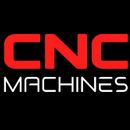Understanding and Optimizing Payment Terms in Manufacturing

💰 Understanding and Optimizing Payment Terms in Manufacturing
In the manufacturing industry, payment terms are crucial for maintaining healthy cash flows and strong supplier relationships. They define the conditions under which buyers pay suppliers for goods and services, impacting both operational efficiency and financial stability.
📄 Common Payment Terms in Manufacturing
Manufacturers typically employ various payment terms to balance cash flow needs and supplier expectations:
- Net 30/60/90: Payment is due within 30, 60, or 90 days post-invoice. Net 30 is widely used, while Net 60 or Net 90 may be negotiated for larger orders or established relationships.
- Cash in Advance (CIA): Payment is made before goods are shipped, minimizing risk for suppliers.
- Cash on Delivery (COD): Payment is due upon receipt of goods, offering security for suppliers and flexibility for buyers.
- Progress Payments: Payments are made at predetermined stages of production, common in large or custom projects.
- Early Payment Discounts: Incentives like 2% off if paid within 10 days (2/10 Net 30) encourage prompt payments.
🛠️ Best Practices for Structuring and Managing Payment Terms
To optimize payment terms:
- Align Terms with Cash Flow: Ensure payment schedules support your company’s cash flow requirements without overburdening suppliers.
- Customize Terms: Tailor payment terms based on supplier size, reliability, and the nature of goods or services provided.
- Implement Clear Contracts: Clearly outline payment terms, penalties for late payments, and dispute resolution mechanisms in contracts.
- Leverage Technology: Use automated systems for invoicing and payment tracking to reduce errors and delays.
- Maintain Open Communication: Regularly discuss payment expectations and any potential issues with suppliers to foster trust and collaboration.
⚠️ Potential Disruptions to Payment Terms
Several factors can disrupt agreed-upon payment terms:
- Economic Downturns: Financial instability may lead to delayed payments or renegotiated terms.
- Supply Chain Interruptions: Delays in receiving goods can affect payment schedules.
- Disputes Over Deliverables: Disagreements on product quality or specifications can stall payments.
- Administrative Errors: Incorrect invoices or miscommunications can lead to payment delays.
✅ Strategies to Ensure Timely Payments
To mitigate disruptions and ensure adherence to payment terms:
- Offer Early Payment Incentives: Discounts for early payments can motivate buyers to pay promptly.
- Enforce Late Payment Penalties: Clearly defined penalties can deter delayed payments.
- Regularly Review Terms: Assess and adjust payment terms periodically to reflect current business conditions.
- Strengthen Supplier Relationships: Building strong partnerships can lead to more flexible and reliable payment arrangements.
Effective management of payment terms in manufacturing is vital for sustaining operations and fostering positive supplier relationships. By understanding common terms, implementing best practices, anticipating potential disruptions, and employing strategies to ensure timely payments, businesses can enhance financial stability and operational efficiency.


